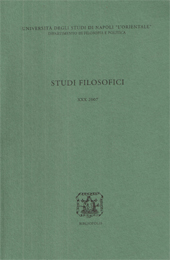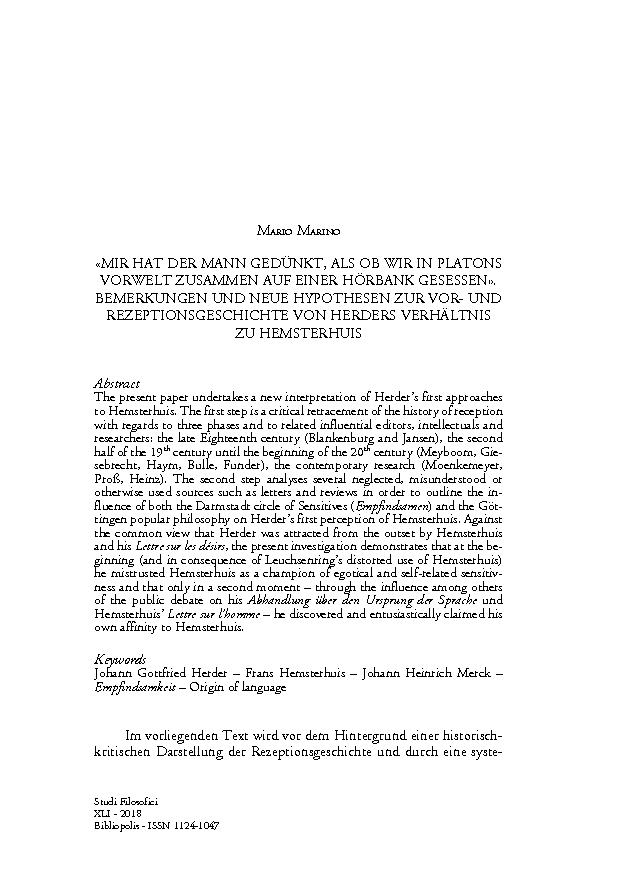Mir hat der Mann gedünkt, als ob wir in Platons Vorwelt zusammen auf einer Hörbank gesessen : Bemerkungen und neue Hypothesen zur Vor- und Rezeptionsgeschichte von Herders Verhältnis zu Hemsterhuis
P. 119-140
The present paper undertakes a new interpretation of Herder's first approaches to Hemsterhuis. The first step is a critical retracement of the history of reception with regards to three phases and to related influential editors, intellectuals and researchers: the late Eighteenth century (Blankenburg and Jansen), the second half of the 19th century until the beginning of the 20th century (Meyboom, Giesebrecht, Haym, Bulle, Funder), the contemporary research (Moenkemeyer, Proß, Heinz). The second step analyses several neglected, misunderstood or otherwise used sources such as letters and reviews in order to outline the influence of both the Darmstadt circle of Sensitives (Empfindsamen) and the Göttingen popular philosophy on Herder's first perception of Hemsterhuis.
Against the common view that Herder was attracted from the outset by Hemsterhuis and his Lettre sur les désirs, the present investigation demonstrates that at the beginning (and in consequence of Leuchsenring's distorted use of Hemsterhuis) he mistrusted Hemsterhuis as a champion of egotical and self-related sensitivness and that only in a second moment – through the influence among others of the public debate on his Abhandlung über den Ursprung der Sprache und Hemsterhuis' Lettre sur l'homme – he discovered and entusiastically claimed his own affinity to Hemsterhuis.[Publisher's text]
-
Articles from the same issue (available individually)
-
Information
DOI: 10.1400/266976
ISSN: 2038-6613



